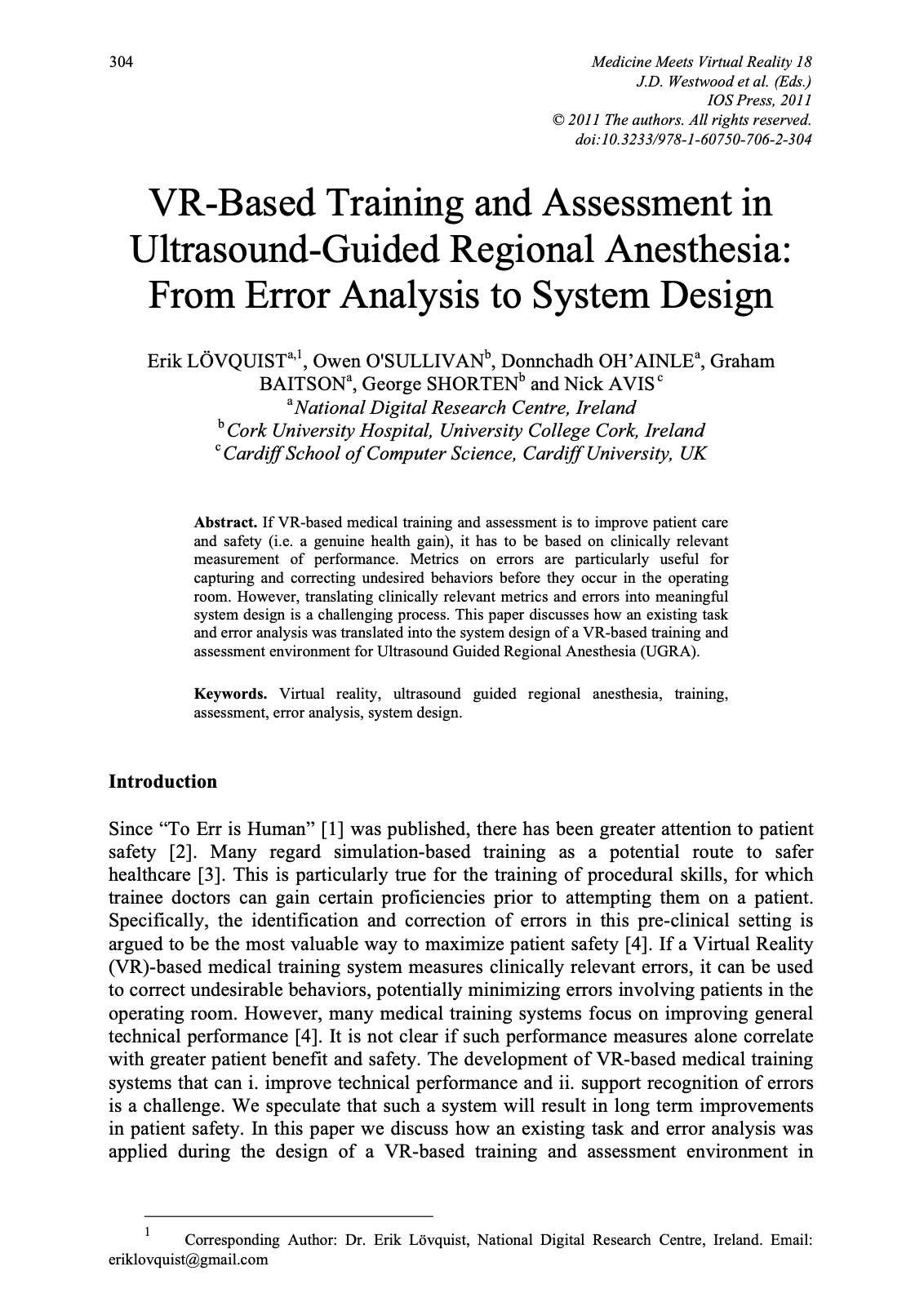MEDIA | PUBLICATIONS
MEDIA | PUBLICATIONS
Explore my publications where I've contributed insights and research findings to the broader discourse on technology and its impact. These publications reflect my commitment to sharing knowledge and advancing innovation.
VR-based training and assessment in ultrasound-guided regional anesthesia: from error analysis to system design
VR-based training and assessment in ultrasound-guided regional anesthesia: from error analysis to system design
ERIK LÖVQUIST, OWEN O'SULLIVAN, DONNCHADH O'H-AINLE, GRAHAM BAITSON, GEORGE SHORTEN, NICK AVIS
Studies in Health and Technology, 2011, Volume 163, Pages 304 - 310
If VR-based medical training and assessment is to improve patient care and safety (i.e. a genuine health gain), it has to be based on clinically relevant measurement of performance. Metrics on errors are particularly useful for capturing and correcting undesired behaviors before they occur in the operating room. However, translating clinically relevant metrics and errors into meaningful system design is a challenging process. This paper discusses how an existing task and error analysis was translated into the system design of a VR-based training and assessment environment for Ultrasound Guided Regional Anesthesia (UGRA).

